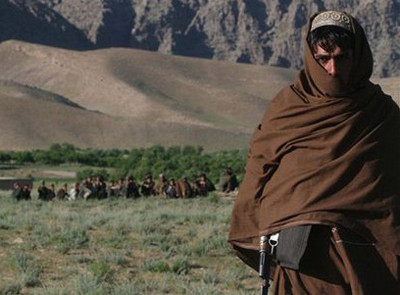
An Afghan militia guard as he looks on in a village Chenar Tu in Oruzgan. (Photo: http://wn.com/Oruzgan_Province )
US-trained Afghan village police have committed some human rights abuses, a US military inquiry has found.
The investigation followed a report by Human Rights Watch that alleged some Afghan Local Police units had committed abuses including rape and murder.
Recommendations made by the US investigation include increased human rights training for the ALP, plus stronger oversight.
The inquiry was carried out without the involvement of the Afghan government.
The investigation, ordered by the Nato commander in Afghanistan US Gen John Allen, looked into a total of 46 allegations made in the Human Rights Watch (HRW) report.
It found seven of the allegations to be credible.
They included a case where Afghan police had killed an ALP commander who was trying to release two boys kidnapped by police for ransom.
It found 10 accounts not credible, 14 that could not be determined, and 15 that were "credible in part".
The investigation admits that many issues involve petty theft and abuse of authority - the kind of complaints that led at least some Afghans to support the Taliban in the first place, says the BBC's Caroline Wyatt in Kabul.
'Vital service'
"HRW's focus in its report is on allegations of misconduct. This investigation first and foremost demonstrates the command's seriousness in responding to widespread allegations such as these," the report's summary said.
However, it said that HRW "ignores the vital service" that the ALP is "providing every day to give Afghans a chance to end 30 years of conflict and live peaceful lives".
The ALP force currently has about 9,000 members and is due to triple in size to 30,000.
The US military hopes the force will be able to control the insurgency in Afghanistan similar to the local militias it created in Iraq.
The force is trained by US Special Forces and new recruits are selected by villagers themselves.
However, human rights groups are concerned that the initiative could legitimise Afghan warlords' existing private militias, as well as create new groups which will be hard to hold accountable.



